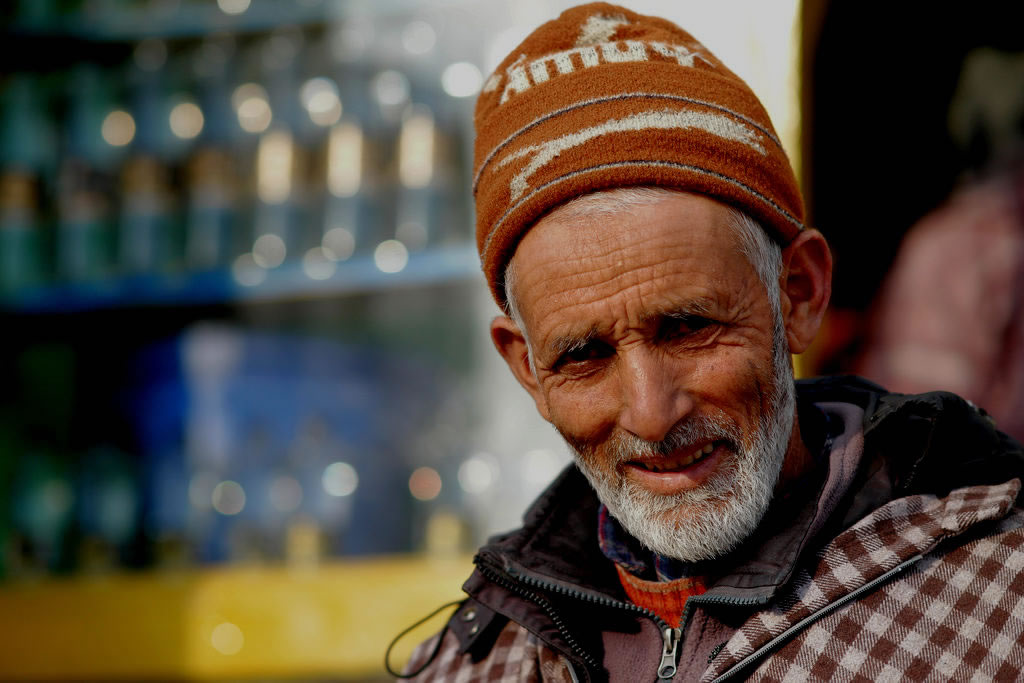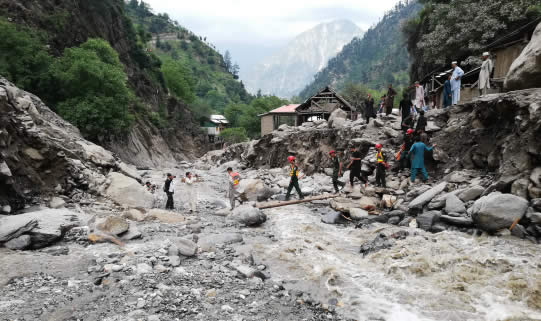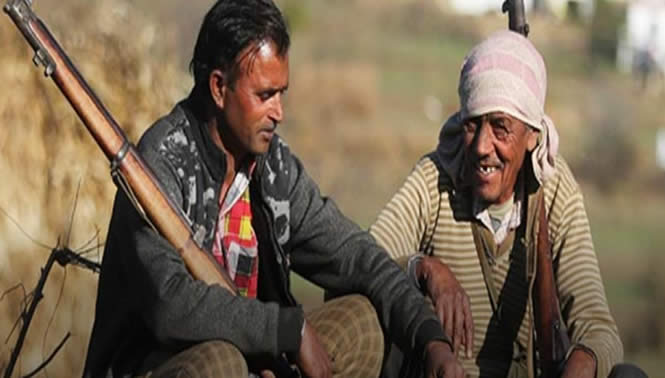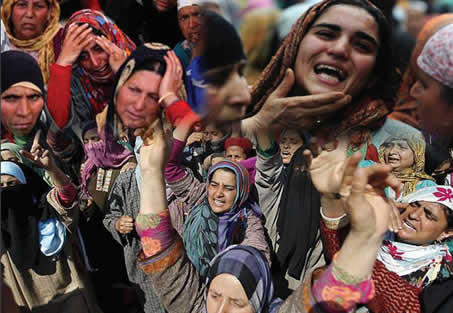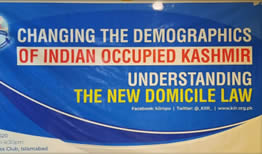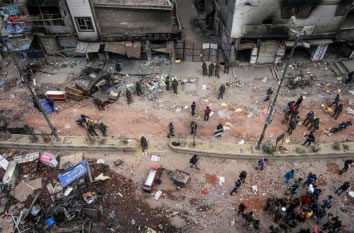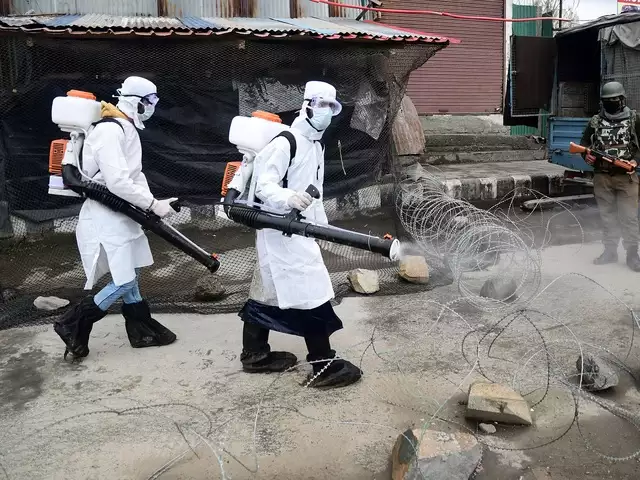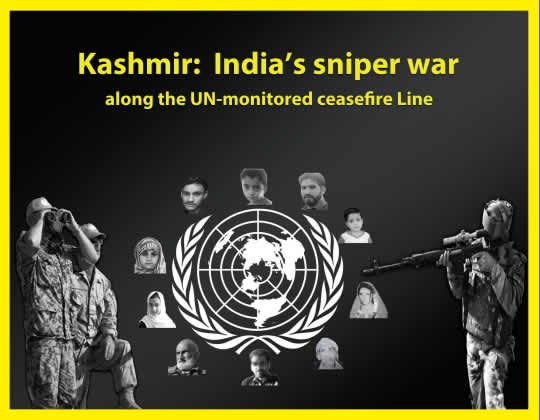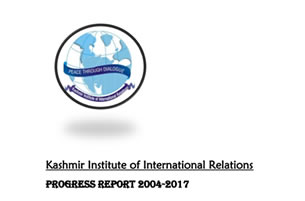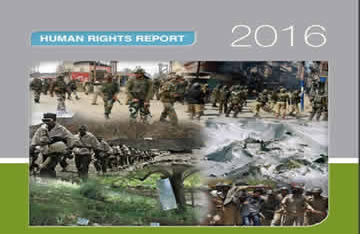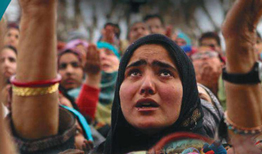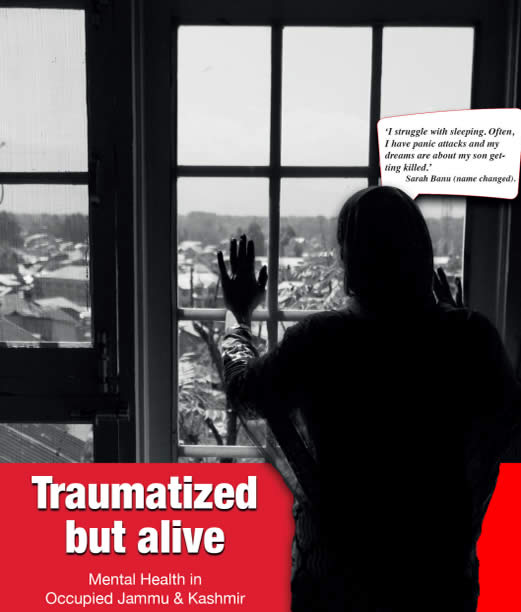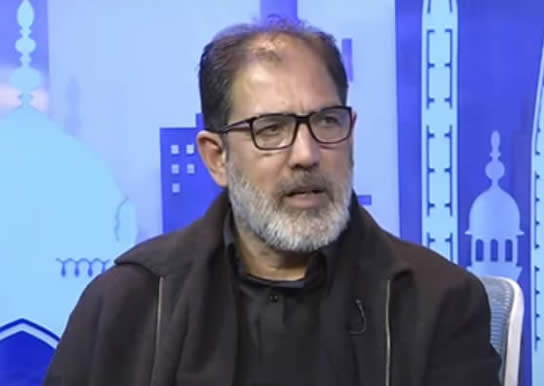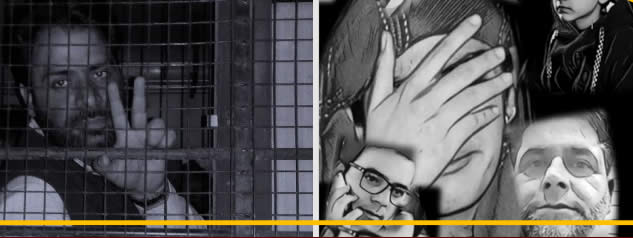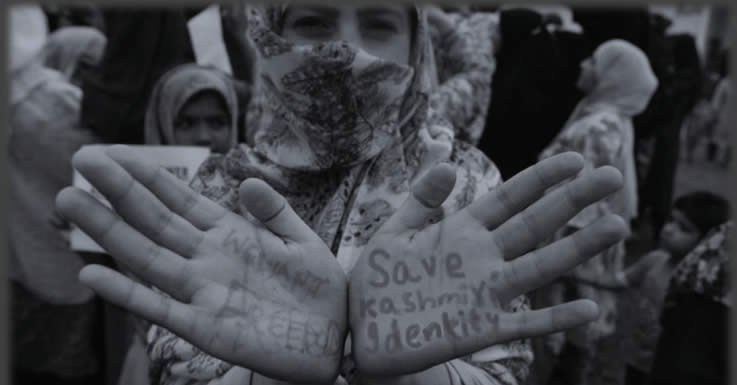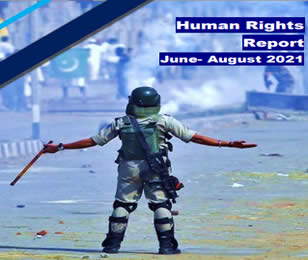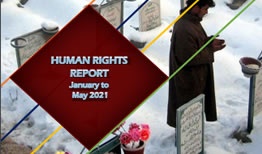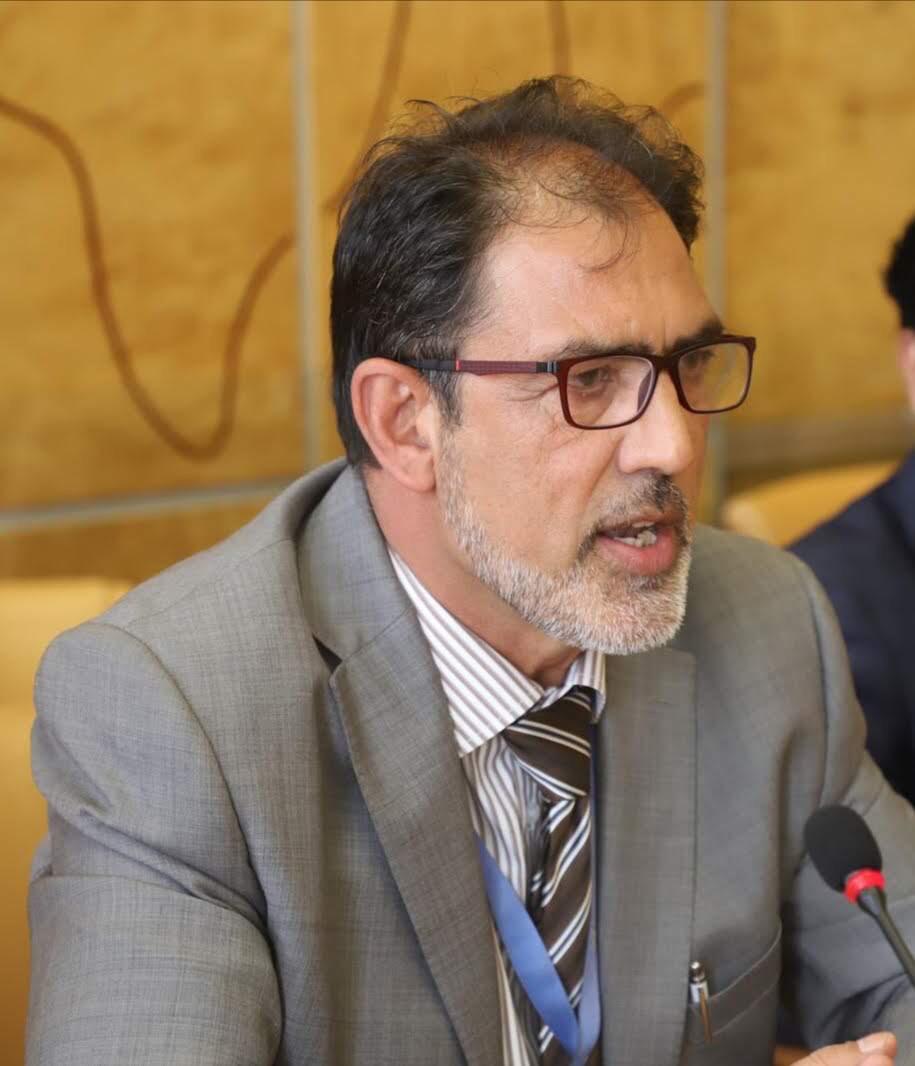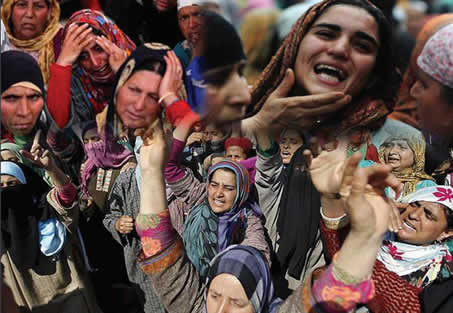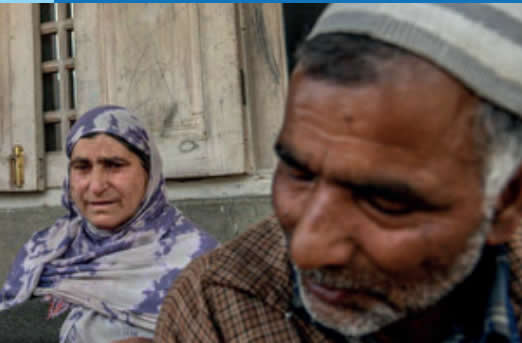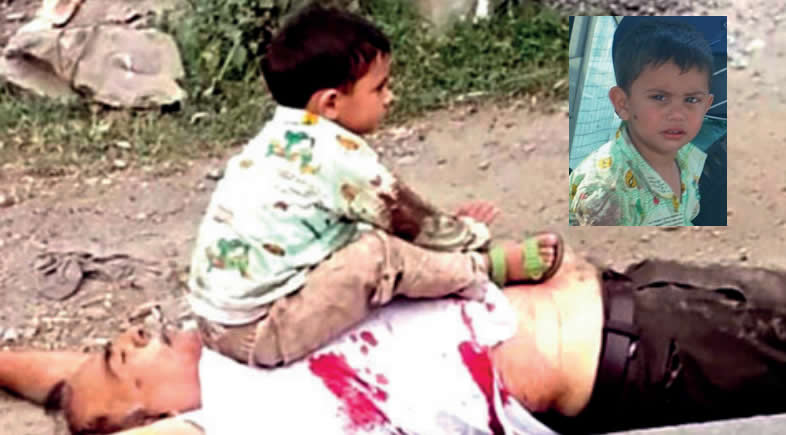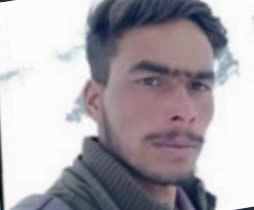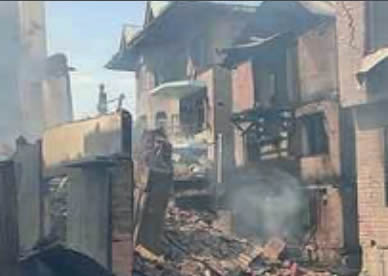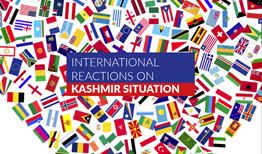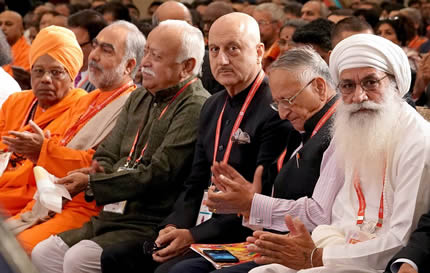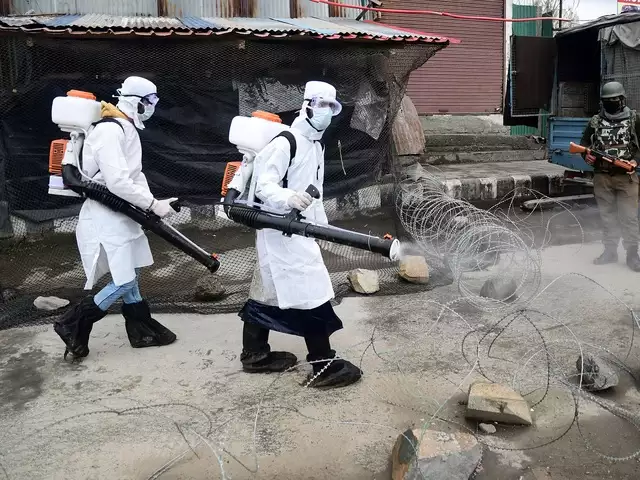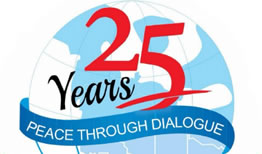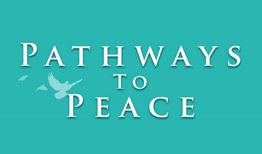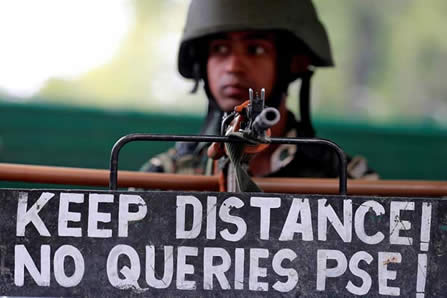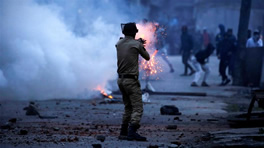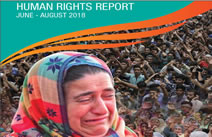Extra-Judicial Executions: India’s Dirtiest Warfare Tactics in Indian Occupied Jammu and Kashmir
Extra-Judicial Executions: India’s Dirtiest Warfare Tactics in Indian Occupied Jammu and Kashmir
By Altaf Hussain Wan
Indian occupied Jammu and Kashmir has been in the grip of violence for several decades. Every-day chaos and carnage on the streets continues to wreak havoc on the lives of common people. Not a day passes without news of innocent civilians being killed in mass shootings, fake encounters, cordon and search operations by the so-called Indian “security forces”. It is heartbreaking to see that it has become a deadly ‘new normal’ that does not raise the least shred of concern or alarm to world leaders.
What is more disturbing that this reckless violence no longer shakes the conscience of the India’s racially driven fascist regime that has been shamelessly normalizing violence making its people believe that the violence is the only way to deal with Kashmiris and the Kashmir problem. This policy, which bears all the imprints of authoritarian rule, revolves around Doval’s dogma of “rule by fear” that seeks to control by any means, all of Kashmir, its people, land and resources.
Fast spreading structures of violence, wanton killings, unmarked graves holding thousands of bodies of summarily executed persons, wailing mothers and fathers seeking return of the bodies of their sons killed in fake encounters, blood-soaked streets and debris of houses burned to the ground by the Indian military all across the Kashmir valley, stand witness to the India’s apartheid regime’s dirtiest warfare tactics adopted as a policy to subdue and silence Kashmiris.
In recent years, human rights conditions further deteriorated as Indian occupation forces embarked on a catch and kill campaign against Kashmiri youth. There has been an immense increase in the incidents of state-sponsored violence. Killing of civilians in fake-encounters and summary executions of detainees by the Indian “security forces” have become common. Reprisals against civilians and attacks on politicians, civil society activists, journalists and human rights defenders have escalated dramatically since 5th August 2019.
At least 30 Kashmiris, mostly young boys, were killed by Indian forces in fake encounters since October 1, 2021. Heart wrenching photos and video clips went viral on social media as the Indian paramilitary troops dragged three Kashmiri youth out of their car at Rambagh area of Srinagar and shot them dead. Earlier, three civilians including a doctor and two traders, were killed after being used as human shields independent inquiry into these deadly incidents of violence. A shocking number of 7,213 custodial deaths have been reported from Kashmir Valley since 1990 till now. According to Jammu Kashmir Coalition of Civil Society (JKCCS), 1,081 civilians have been killed by the Indian forces in extrajudicial killings between 2008 and 2018. But no army officer, not even a soldier of lowest rank has been prosecuted or held accountable. In an attempt to douse the growing public anger in the valley and ward off pressure from the international community, the Government of India has from time-to-time initiated probes into the disputed killings. However, all inquiries be they judicial, non-judicial or magisterial, have proved a futile exercise.
More than 150 magisterial inquiries into the disputed killings have been dumped in Kashmir since 1990. A report compiled by International Federation for Human Rights (FIDH) in collaboration with Jammu Kashmir Coalition of Civil Society (JKCCS), shows that between January 2008 and December 2018, 107 enquiries were ordered by the Jammu & Kashmir Government. The highest numbers of enquiries were ordered in 2009. Out of 107 inquiries, no one has been prosecuted or held accountable.
Unfortunately, these unfinished probes and hollow inquiries initiated by the Indian Government have led nowhere. These deceptive tactics, which are a part of structural forms of violence, have been used by the Indian occupation authorities as a tool to buy time, manage headlines and hoodwink the international community.
The unending cycle of violence and state terrorism evoked a strong condemnation from the UN High Commissioner for Human Rights and other International human rights bodies seeking an independent investigation for all "extrajudicial killings" in the heavily militarized region.
Meenakshi Ganguly, South Asia Director at Human Rights Watch (HRW) while expressing his concern over the continued bloodshed in Kashmir said, “Security forces have long operated with impunity in Kashmir, and past army investigations have been more focused on shielding those responsible for abuse than providing justice”.
Earlier, Amnesty International called on Indian Occupation authorities in Jammu and Kashmir to take seriously its obligations under International Human Rights Law to stop the unlawful killings in the region.
Through several official communications addressed to the Government of India, the United Nations Special Rapporteur on extrajudicial, summary or arbitrary executions has raised concerns about the violations of the right to life in Jammu and Kashmir, especially since 2016 mass uprising began.
Since January 2018, the Special Rapporteur has sent three communications to India expressing concerns about “intentional, excessive or indiscriminate use of firearms” by Indian security forces and the failure to conduct “thorough, prompt and impartial investigations” into the killing of innocent civilians.
In a damning report on violence in the Indian occupied Kashmir, the Office of the High Commissioner for Human Rights (OHCHR) in its first-ever report released in June 2018, called for an international inquiry into multiple violations of human rights. The then UN Commissioner, Zeid Ra’ad Al Hussein, stressed the need for establishing a commission of inquiry to conduct a comprehensive independent international investigation into human rights abuses in the region.
Taking note of the OHCHR’s report, a number of United Nations Special Rapporteurs issued a joint communication in which they regrettably noted the Indian government’s obvious reluctance to act and implement the recommendations in relation to the repeal of the Armed Forces Special Powers Act (AFSPA), and the establishment of a commission of inquiry to probe all civilian killings which have occurred since July 2016.
Regrettably, the Government of India
not only objected to the report but also refused to comply with the
international human rights obligations and cooperate with the UN mandate
holders.
The dismissal of the concerns raised in the UN report and refusal to work with the Council and other mandate holders raise serious questions about the Indian Government’s credibility and its commitments to uphold international law.
As per the international law, Member States of the UN are liable for breaches of their obligations; every state is responsible for direct violations of international law—the breach of a treaty or the violation of another state’s territory. A state also is liable for breaches committed by its internal institutions. A state is duty bound to respect and protect human rights and provide access to justice for all and ensure a proper accountability mechanism to uphold the rule of law.
Unfortunately, the situation is quite opposite in the Indian occupied Kashmir, where justice has become a causality of the dirty war the Indian government has imposed on the hapless Kashmiris. Absence of a credible accountability mechanism, lawlessness and blanket impunity enjoyed by the occupation forces under various laws have been the biggest barriers, blocking access to justice.
The idea of true justice will continue to elude victims' families unless these barriers blocking access to justice are removed, the culture of impunity that has totally impeded accountability and jeopardized the right to remedy for victims of human rights violations, is withdrawn and eradicated.
Impunity for human rights violations and lack of access to justice are key human rights challenges in the state of Jammu and Kashmir. To stop the slaughter of innocent civilians in Kashmir it is imperative that an independent and transparent inquiry as recommended by the OHCHR report should be held to investigate the past and current human rights violations committed by the Indian troops.
Author
is the Chairman of Islamabad based think tank, Kashmir Institute of
International Relations. He can be reached by email: Saleeemwani@hotmail.com
Related Reports
